Do you like the idea of living plastic free and zero waste but are discouraged by the lack of bulk stores in your area? I was too to begin with, but I was determined not to give up. Now my family of four produces about one handful of landfill and one large bucket of recycling per week. There is still stuff we’re working on but we’re getting there.
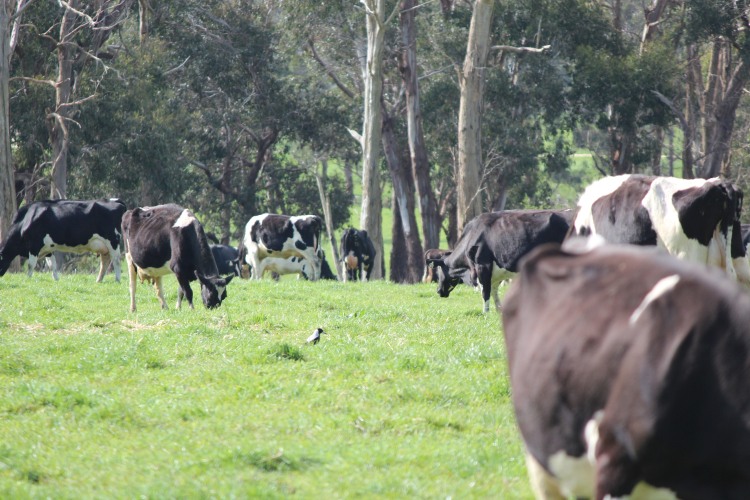
We live on a dairy farm in Gippsland, Victoria, Australia which is a rural area characterised by small geographically isolated communities and a few large regional centres. I am yet to hear of a bulk store in Gippsland, the closest being in Melbourne which is a minimum of one hour away by road or rail. I feel the lack of bulk stores, which sell a plethora of package free food and other products, is the only difference between country and city zero waste living.
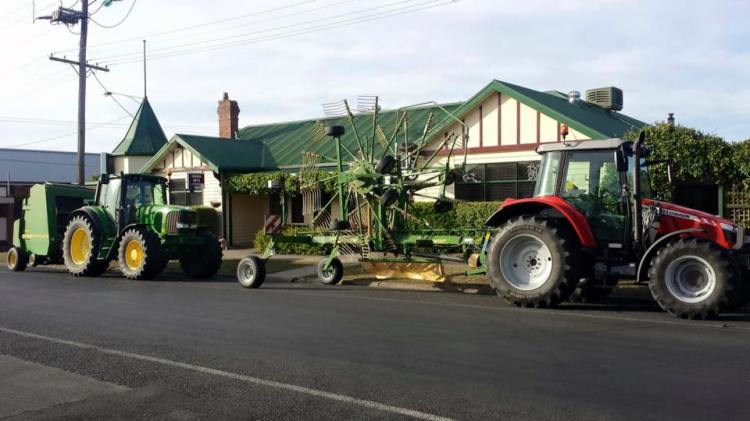
There are a number of things I do to make up for the lack of bulk stores in our area, which you can do to. I won’t lie, it does require effort, organisation, and time as any lifestyle change does, but it is totally doable and very fulfilling. Whilst I have taken advantage of the benefits of living in a rural area, this guide applies to anyone wishing to significantly reduce their waste.
Here is your guide to living plastic free and zero waste without bulk stores:
Pare back
Work out what in your life is actually necessary and what isn’t. Don’t buy the stuff that isn’t because it doesn’t contribute to your happiness, it just contributes to landfill during its stages of production, disposal of the packaging, and disposal of the product at the end of its life. I’m not talking about depriving yourself, just keep in mind that happiness is a mindset, not a collection of stuff.
When we went from two full time wages to one with the birth of our first child, and because I was too tired for years to really care about shopping or extravagant beauty routines, I realised that nothing dramatic happens if you don’t have the latest gadgets or miracle beauty products.
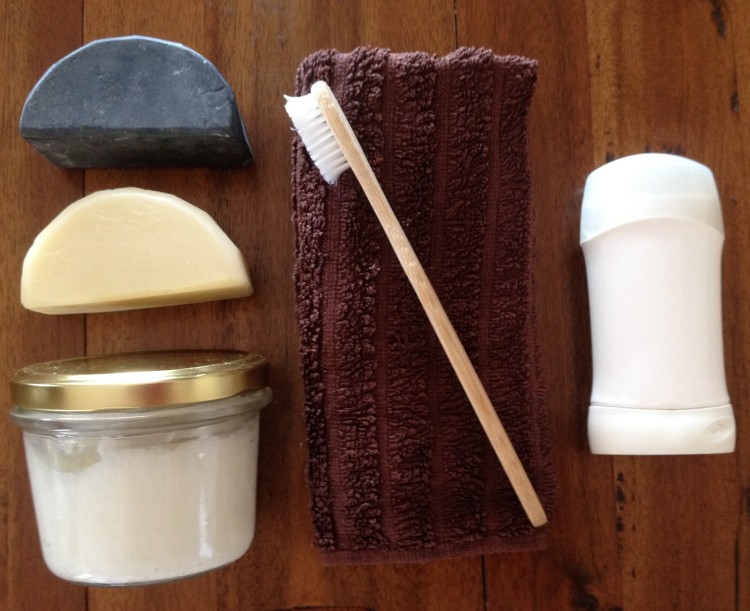
You can also apply the paring back principle to food. We do have a problem in this country with people eating too much processed and packaged food, so make an assessment about which packaged food products you can stop buying. Plus, if you are always throwing out wasted food, then maybe you shouldn’t buy so much of it.
Think outside the square
Be an inventive problem solver. At the cinema we asked for our soft drinks to go into our stainless steel containers rather than using disposable packaging. Why not take a large container to an ice creamery to be filled and kept in the freezer at home? If it is one thing I have learnt on this journey, it is that we do have choices and most problems can be solved.
Look harder and talk more
Word of mouth and searching through numerous local stores has helped me find many things that are actually sold in bulk or package free! I am ashamed to say that I had lost touch with small local businesses and no longer knew what was available in the towns surrounding me. As a society we have become used to shopping at one-stop giant convenience stores. It’s no wonder then that when we can’t find a large bulk convenience store, we think zero waste living is an impossibility (technically it is but we can work towards it as much as possible). Whilst it would be handy (I have kids so I get it), it is not necessary and I feel good about spending my money in the stores that are owned by the people I went to school with.
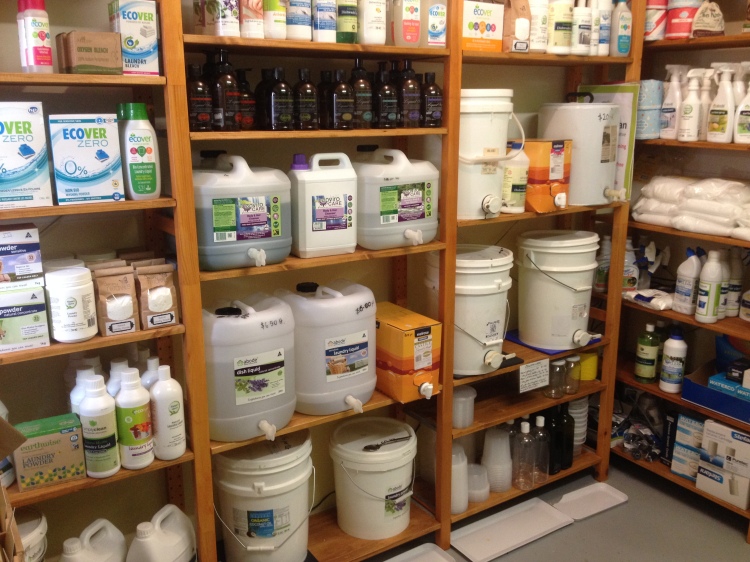
I have found five stores so far in a 30-minute radius from where I live that are meeting my needs. We tie our visits in with other trips we need to make and I buy as much as I can to last a few weeks or even months. I do this to save fuel and time, but it can make zero waste living seem more expensive. However, I have found it to be cheaper in the long run.
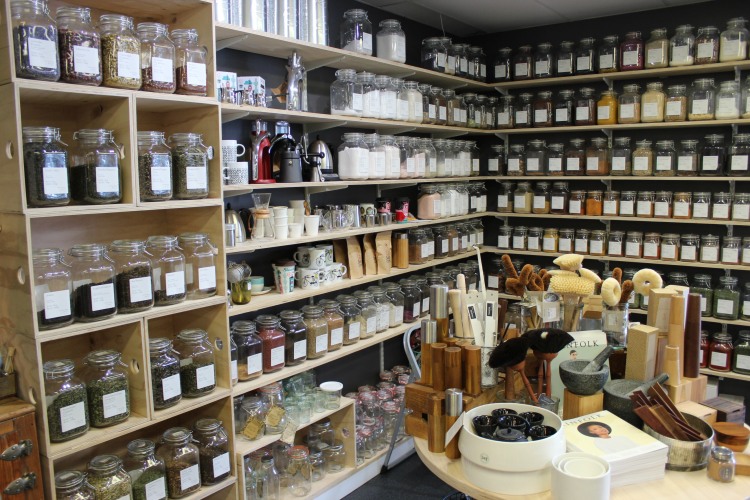
Sometimes it is not recommended to buy food in large amounts because of the risk of wastage but if you store the food in jars and containers it will last a long time. It is about finding out what works for you. I have also found having a pantry full of ingredients means I can make things whenever I feel like it.
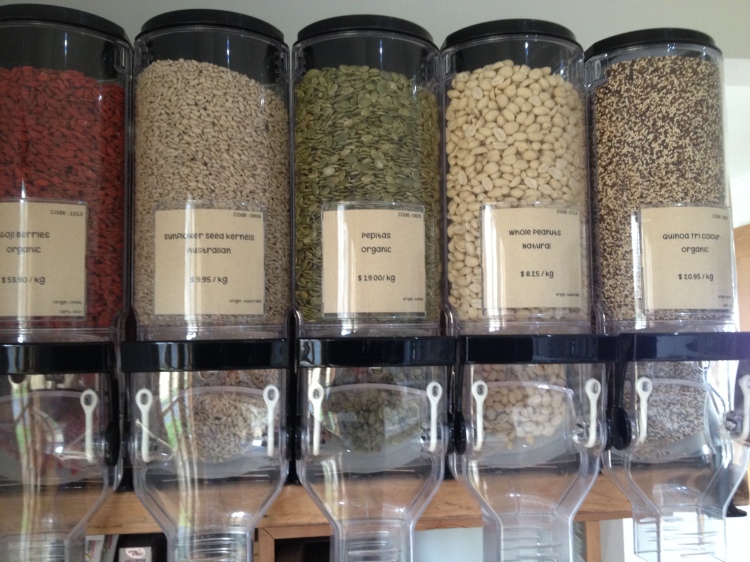
When in doubt find out
Make friends with the butcher, the baker, the grocer, the delicatessen, and other local store managers and owners. Tell them about your needs, they are always willing to help if they can. I have solved so many of my problems, like finding cheese plastic free, by asking questions and having a conversation.
I discovered that some stores, like health food shops, do the packaging themselves and are happy for you to bring your bags and containers to collect from the bulk quantities of goods out the back. I’ve also had several local product manufacturers suggest I collect their product direct from them before it gets packaged, for example washing powder and cleaning products. If more and more of us start requesting no packaging then change will happen, and at the local level it can happen quicker.
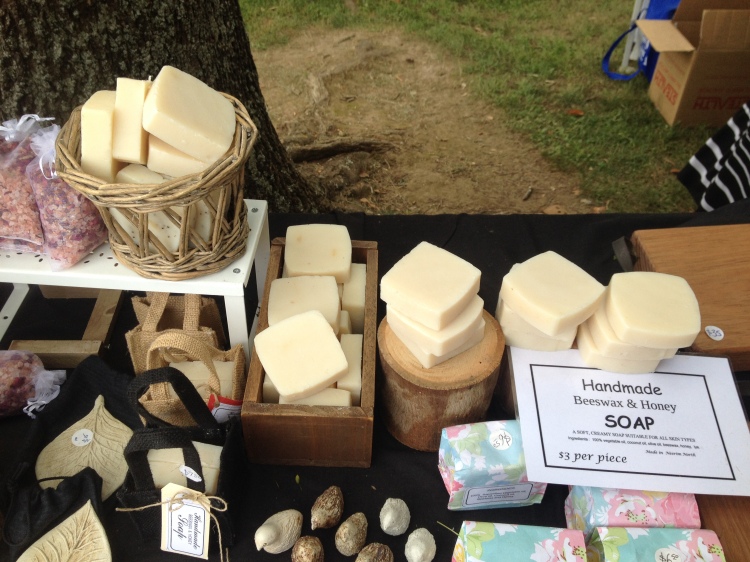
Rediscover markets
I love the thrill of a zero waste discovery and markets have not disappointed. I found a lady who lives very close to me who sells her natural cleaning and body care products in bulk. I have found blocks of unpackaged bees wax direct from the bee keeper. It is also easy to find gifts and other package free items, often beautifully hand crafted and sometimes secondhand. Farmers markets have the added benefit of getting your produce without plastic stickers and other packaging. And markets give you a valuable opportunity to know who made the product or grew your food, and how.
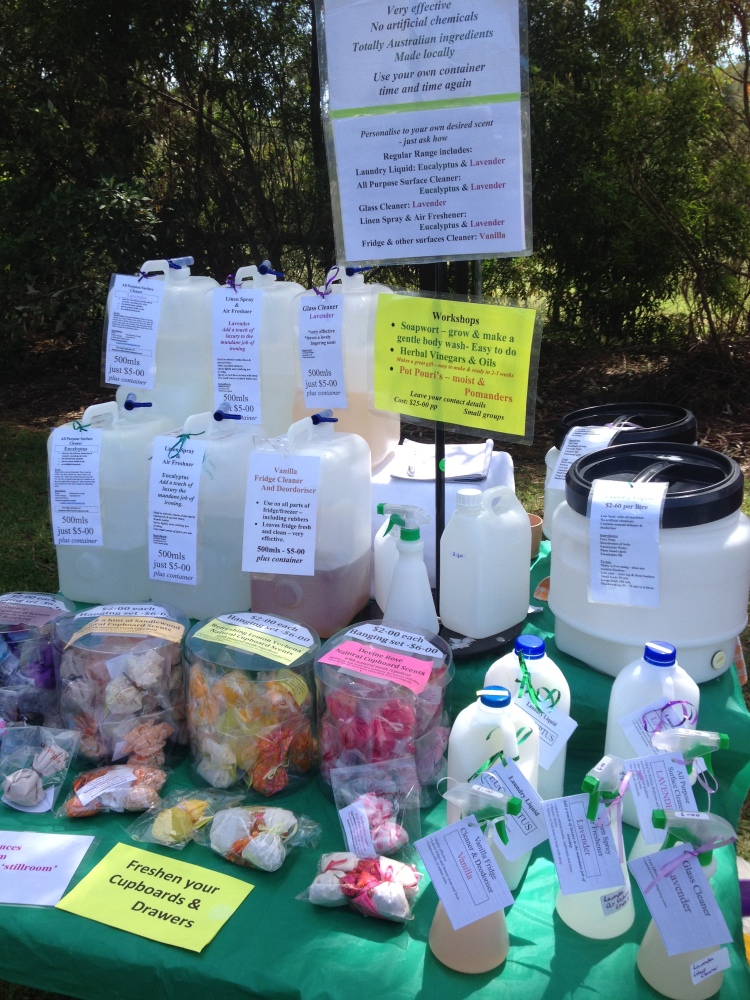
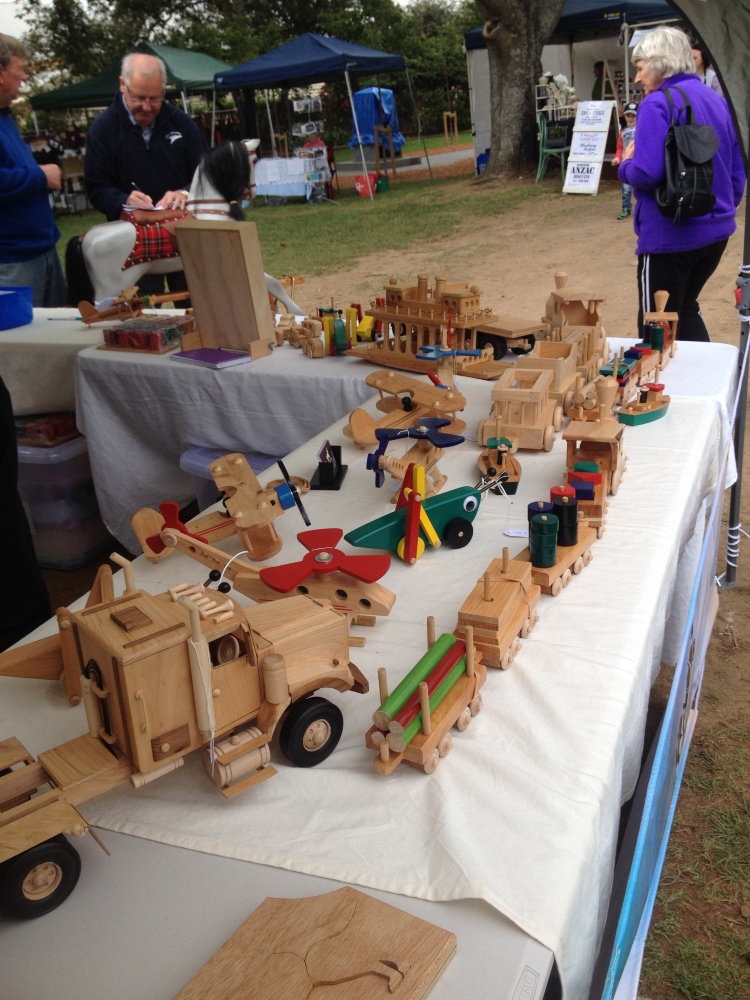
Go direct to the producer
Before I found bees wax at the market (it gets used in various beauty product recipes), I looked up bee keepers to find out who would be willing to sell their bees wax to me.
We used to buy bags of frozen berries and plastic punnets of strawberries so this time I went straight to the berry farms to collect the berries in our own containers. We have frozen them in jars so we can enjoy them for as long as possible.
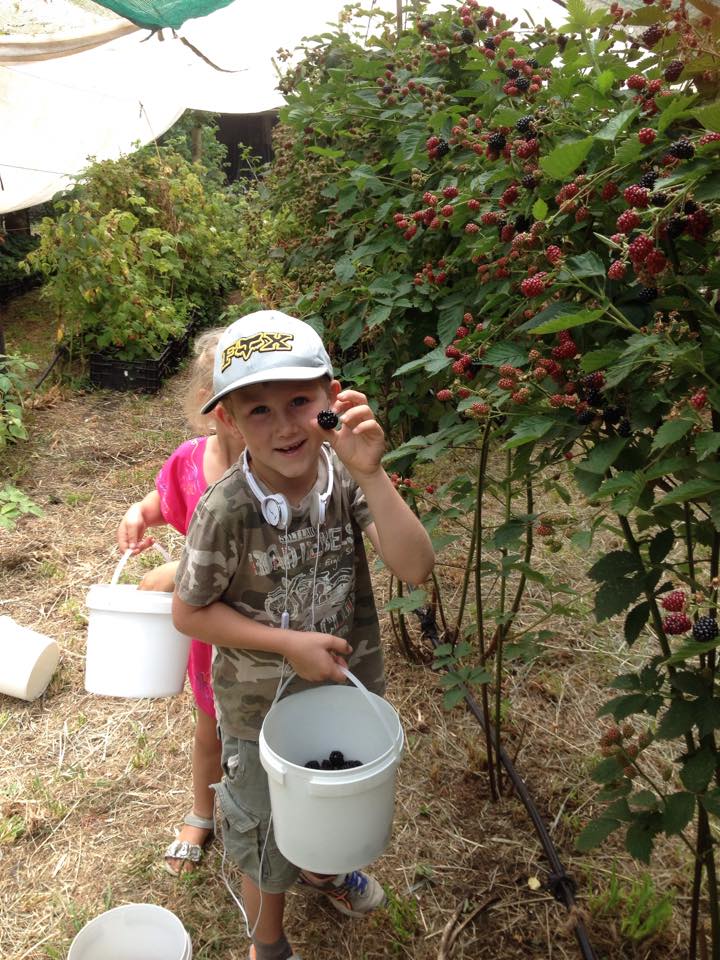
There are other farmers such as apple and nut growers which offer farm gate sales too. Being in Gippsland, we are in the heart of food production. There are resources such as the Southern Gippsland Food Map which show you which producers exist in the region.
Have a go at growing your own
We generally have more space for growing in rural areas, but there are many examples how to grow in small spaces, as well as community gardens you could join. It’s definitely worth having a go. I’m trying to grow a lot of food but one thing I really wanted to do was grow lots of peas to keep in the freezer. I have a few recipes that I really like to use peas in but I have been leaving them out because I’d have to buy them frozen in a plastic bag. Unfortunately, I haven’t done too well so I’m thinking about how to get round this issue by talking to my grocer. I also love cherry tomatoes but they always come in plastic punnets, it’s so good to be able to pick them fresh and gobble them up. Keeping chickens is also worth considering as they provide eggs and consume food scraps amongst other good things. It means you won’t be using up egg cartons.
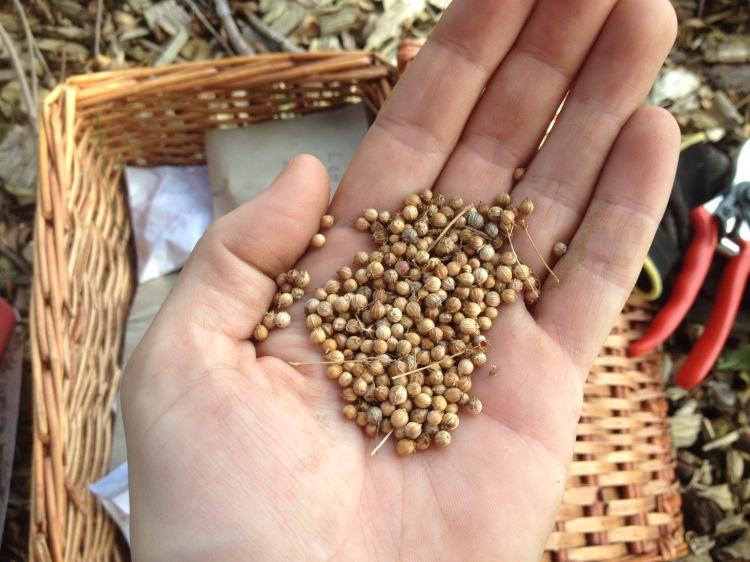
Trade
Whilst I might not be good at growing peas, others might be, so I can trade with them something like my Kombucha SCOBYs which I am good at making. I also trade seeds and plants with friends to grow my own and avoid the plastic containers. Anything is up for trade and the value of items depends on the people involved in the transaction. If you are growing your own food and have excess you can also take it to a produce swap to trade for something you do need more of. The swaps usually operate very informally and are a great source of learning growing and cooking tips too. If you can’t find one near you – start your own. That’s what I did in Poowong and it ran for four years.
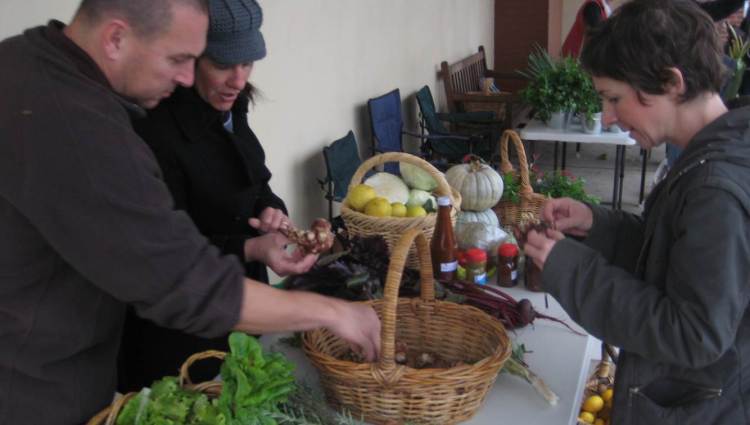
Forage
Who doesn’t love the thrill of foraging? Finding wild food for yourself or free food offered by someone else connects you with your local environment and community. There are websites like Ripe Near Me helping to facilitate access to free food.
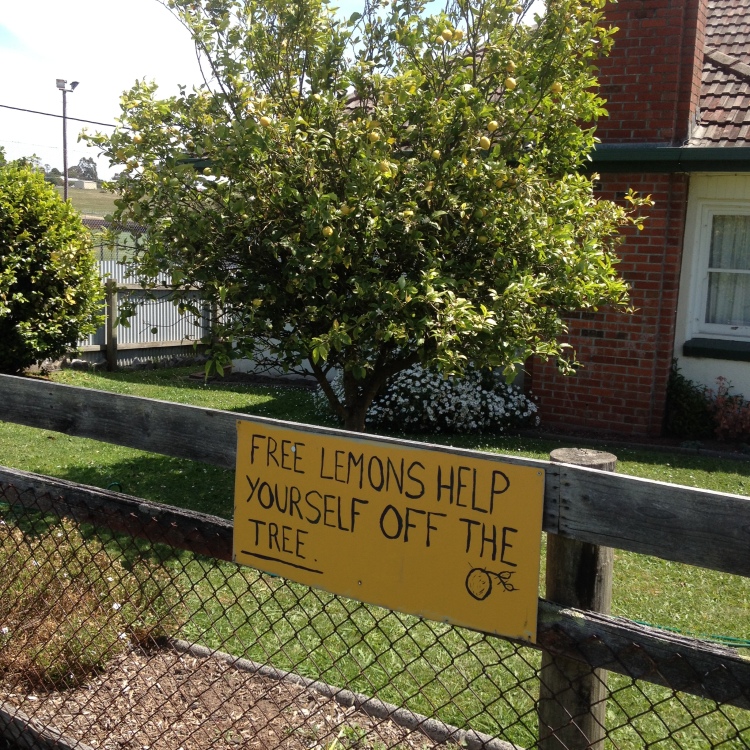
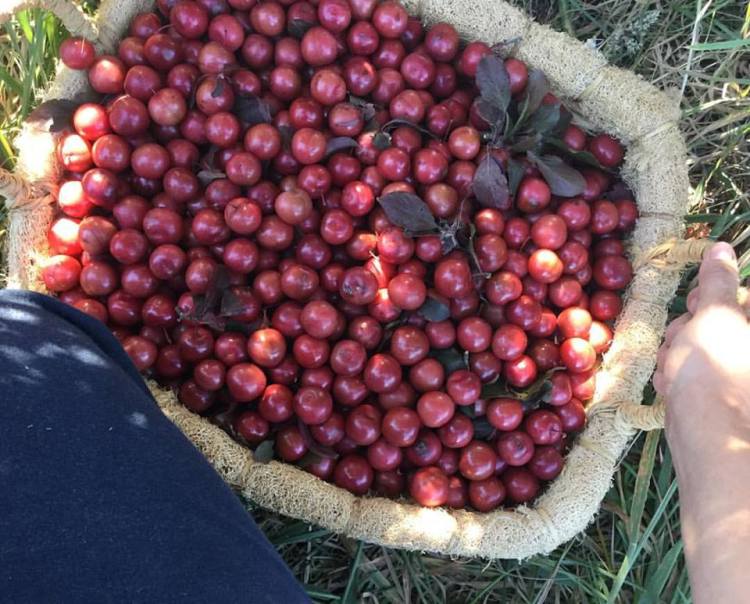
Work together and create bulk buying groups
Don’t wait for someone else to provide you with bulk options. Use your initiative and make it happen. A friend of mine told me about some women working together to bring plastic free, bulk toilet paper to our area. I could have ordered the toilet paper online myself but by joining the bulk buy group I get a rather large discount. I’ve also been able to find friends in my town who are interested in similar projects and we’re hoping to organise similar bulk deals for various things in 2016. I will let you know how we go.
Connect with local sustainability groups
Local sustainability groups provide a wealth of information. If you are in Gippsland you could use the Sustainability Gippsland directory to help you find groups you are interested in. The Baw Baw Sustainability Network in my area is working on organising a bulk buy group. The group operated in the past for quite a while and are hoping to continue into the future. There’s just a bit of organising to do. If you are interested, let them know and keep an eye on their website. If you are not near the Baw Baw group then why not start one with your local sustainability group?
Make it from scratch
Finally, there is always the option of making things from scratch. To increase the range of food we eat and to avoid a big shock to the system I started making muesli bars, potato crisps, slices, and so on. I can’t find these sorts of treats unpackaged like you might do in a bulk store so if we want to eat them, I need to make them. Oh, I can get some donuts and slices from the bakery, and the health food shop has sultanas coated in yoghurt and that sort of thing. Overall, the reduction in processed, packaged foods means we are healthier.
I hope this post has revealed how many other social, environmental and economic benefits come from a zero waste lifestyle. It makes you shop more local and eat more seasonal. It reconnects you with food production and your community. You find like-minded people and forge new friendships. This is fulfilling and it helps maintain the momentum for zero waste living.
This blog is about sharing information, so if you have anything to add to this list or if you do start your own groups and projects then please let me know. I’d really love to hear about them and help you spread the word.
This post was republished by 1 Million Women, a movement of women acting on climate change through the way we live.

Hi Tammy, I have been following your blog for a while now and find you very inspiring! I have made my New Years resolution to drastically cut down the amount of waste and also really look at anything I am buying, minimal spending! Going to have a go at making home cleaning products and beauty products as well to cut waste and costs. Love your blog , keep the ideas coming!
Brenda
LikeLiked by 1 person
Thank you so much Brenda! I love hearing about what others are doing and I think it’s really important for us to share our experiences and discoveries so we can keep it up. From the feedback I am getting and things I am hearing I feel like there is a groundswell happening around me and that we are really going to make a difference in our region.
LikeLike
Another post with a wealth of information Tammy! For anyone in Latrobe Valley Manny’s Market deli stock dried fruits, nuts, grains, pulses (beans & lentils), rice, cereals etc in bulk. I am yet to find a supermarket deli willing to fill a BYO container and I need to check out Stella’s Pantry in Warragul who I believe will do so. Lets get that ground swell moving!
LikeLiked by 1 person
Yes Stella’s definitely do. I want to check out Manny’s market again, haven’t been there for years. Thanks for the info Maree, much appreciated.
LikeLiked by 1 person
Hi, doe know the name the soap and herb vinegar place you have pictured who mention classes? The shot of the soaps etc, I can’t see a name to contact. Cheers, Maree.
LikeLike
Okay, so the herbs are String and Salt in Warragul. You can also get the Barany Naturals soap there. Otherwise they do markets. The picture of the soaps at the Warragul market are from Neerim Junction but they don’t have a name. The bulk cleaning liquids, honey, etc are at the Leongatha Health Food Store and Freedom Organics in San Remo. I believe both of those places have Apple cider vinegar too. The other one I go to is Wholesome Wholefoods in Tooradin. Some of these might be out of your way a bit too much but hopefully BBSN will get the bulk coop operating again.
LikeLiked by 1 person
Thanks, I should see if I can get more involved with BBSN stuff, just hard to fit stuff in around work. Should give up work I think 🙂
LikeLiked by 1 person
Fantastic post with some awesome ideas. I joined a co op lat yera and this reduce our recycling/ waste output massively. I LOVE it. M x
LikeLiked by 1 person
Glad you like it! I really hope the Baw Baw bulk buy group gets up and running again as it will make life easier. Thanks for getting in touch.
LikeLike
luv all the above comments ,I would like to see some recipes from Gippsland unwrapped I noticed u had some in one of u pictures if that is possible really enjoy u blog I really like living this way as well thanks for all u tips and help
LikeLiked by 1 person
Thank you for this post! When I started zero-waste I lived in a small town with no bulk options and to this day I still can’t shop bulk bins because I have celiac disease. I asked the managers of local family owned grocery store chains if I could use my own containers and they obliged. A local dairy decided to accept my bottles for reuse and an organic farm nearby, which wasn’t under an exclusive contract but didn’t sell to the public at the time, decided to give me produce after hearing why! Now these places all have bulk options, olive oils you can out in your own containers, and the farm and dairy offer items on a deposit system, which you get back when you return their containers. We even started a Co op nearby. It’s still possible even if you don’t live in a big city!
LikeLiked by 1 person
Yay, that’s so good! Thanks for sharing that. People just need to be more proactive like yourself. It gets the ball rolling towards bigger things as you have demonstrated. So many people are too scared to go against the grain, so I’m hoping my blog starts normalising zero waste living for them, and makes it the easy choice. ALL of the store owners I have spoken to are so willing to help, but then I see them thinking about what else they could do too. Keep it up. Tammy
LikeLike
Great post. I am curious what you do for flour and milk – basic foods, but if you live in an area that doesn’t grow wheat or raise cows?
LikeLiked by 1 person
I get my milk straight from the cows on our property.i want to write a specific post on milk because there is a lot to say. If you are lucky you can find it in glass at farmers markets, select stores, and farm gate sales. It is more expensive in glass though. You can reuse the bottle or put in recycling. There is a store near me that has bulk flour and baking soda etc. I’ve spoken to other stores in our area who say they are now considering installing bulk bins – all it takes is a conversation to start making change. The flour bins have where it has come from so I choose the one as closest to me as possible. Hope that helps.
LikeLike
So it is difficult if you don’t live in an area where there are any cows. Or any wheat grown. The area is not large enough to support a shop where any bulkfoods are offered. This makes it really hard to live without plastic.
I did see in a Coles recently, they have returned their bulkfood canisters. Offering plastic bags to get your own though….
LikeLike
Yep, totally agree. I was hoping the article sent the message that you need to know what is truly available and possible in your area and then work with that as best you can. Don’t be disappointed with what you can’t do, be proud knowing you are doing your best. The more conversations you have, the more you raise awareness and start the process of change. Just make sure you follow the 5Rs of Refuse, Reduce, Reuse, Recycle, and then Rot. 👍🏻
LikeLike
Thank you for this article. I live in a rural part of Oklahoma (5 hours north of Dallas, TX!) and my closest city bulk stores are almost 2 hours away. I find it hard to find package free foods but I am inspired to try again with mom & pop stores. A lot of places are willing to order something for you or refer you elsewhere. I appreciate these tips a lot!!
-Lauren Weiss
LikeLiked by 1 person
I’m glad you were able to get something from the article Lauren 😊. Thanks for your comment.
LikeLike
I’m transitioning to zero waste life at this moment and your article it is so helpful for me. Most of the people who talk about zero waste shopping live in big cities, where is easier to find a bulk store (as we know). Thanks.
LikeLiked by 1 person
Thanks Elia, that’s why I started my blog so I’m glad you found this post helpful. 👍🏻
LikeLike
Great blog! I am loving reading your articles. It’s true, you have to get out of your shell and ask. It’s hard to do but people are often so happy to oblige. I asked at our health food store for loose leaf herbal teas and they ordered it in for the store and not just me. I asked at an avocado stall if I could leave their packaging with them and they said I was the first person to ask that and were happy about it.
One problem I have is trying to find choc chips in no packaging. My son likes the Cadbury dark choc ones, but all I’ve found in bulk are the melts and apparently they don’t cut it! Have you tried making them?
LikeLiked by 1 person
Thanks Susan. Choc chips were a struggle for us for a little while too but then I found cacao chips at a whole food store. They are okay in cooked food but the kids don’t like them raw. Chocolate is one of the foods we’ve gradually forgotten about and it doesn’t seem that necessary any more. I haven’t tried anything else 🙂
LikeLike
Thank you so much for the information! Fortunately for us, we have a local amish store that sells bulk items, so i dont have as much of an issue getting most of the stuff i need without packaging. *Unfortunately* at this time in my life and marriage, so much stuff is progressively changing, so i do not feel like i could handle going zero waste. We do recycle heavily and compost though, and have gone from approximately two 13 gallon (49.2 Liter) garbage bags, down to half of one each week. We are working on it! And i love to see that it is possible to actually do! Totally inspiring!
LikeLiked by 1 person
Thank you. That’s great and I think it is important to keep things manageable too. As much as I like showing how far individuals can go with reducing their waste, I still think we need to make it more the responsibility of manufacturers. Great job!
LikeLike
Hi, do you happen to know if those stores that sell in bulk order their products in non-plastic bags, or at least in reusable ones? Thanks!
LikeLike
From what I understand, I would say in most cases the store buys bulk amounts of things in plastic packaging e.g. Large plastic bags or containers. Sometimes the containers will be reused but often not. It depends on if the producer will allow it. Still, the overall amount of packaging involved for the amount of product is much less.
LikeLike
Thank you so much for your tips!, actually where I live (Stockholm) there are not many options for bulk stores, and the ones we have are extremely expensive.
I really enjoyed this post! thanks a lot for the inspiration and keep it up!!
LikeLiked by 1 person
Thank you!
LikeLike